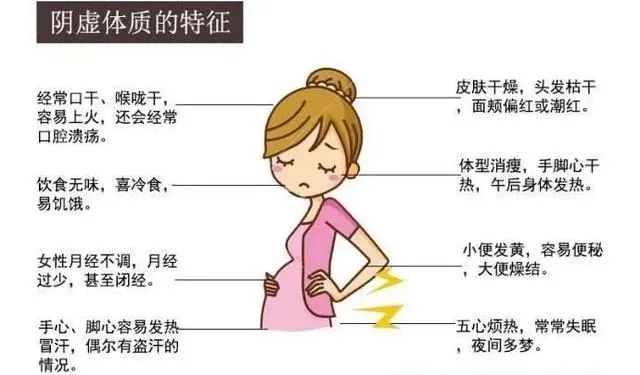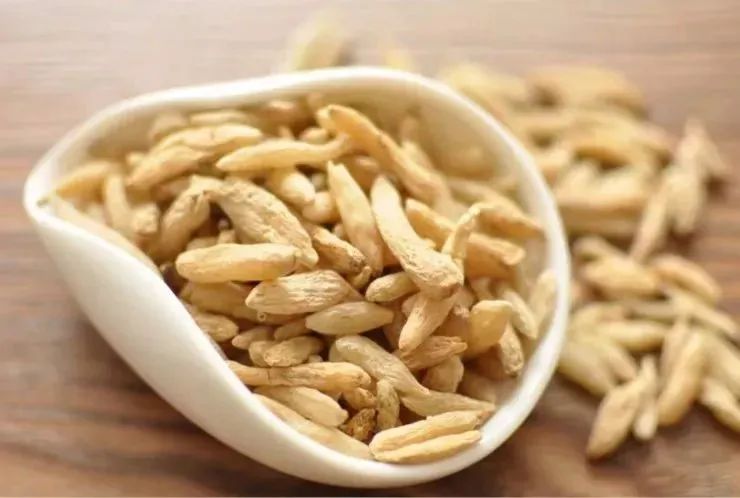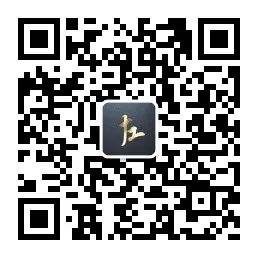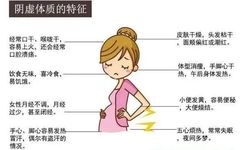Yin deficiency and Yang deficiency are common terms in Traditional Chinese Medicine (TCM). What are the symptoms of Yin deficiency? Let’s discuss Yin deficiency.
When we talk about Yin deficiency, we first think of Liu Wei Di Huang Wan (Six-Ingredient Rehmannia Pill), which is used to tonify Kidney Yin. Symptoms of Kidney Yin deficiency include dizziness, tinnitus, insomnia, forgetfulness, tidal fever, night sweats, weakness in the lower back and knees, loose teeth, and heat in the palms and soles.
In addition to these symptoms, Yin deficiency manifests differently in various organs.
For example, Heart Yin deficiency presents as palpitations, insomnia with vivid dreams, dry mouth and throat, and flushed cheeks; Liver Yin deficiency manifests as dizziness, headaches, sensitivity to light, tearing, blurred vision, irritability, and anger; Lung Yin deficiency shows as dry cough without phlegm, scanty or blood-tinged phlegm, hoarseness, and dry mouth and throat.
Individuals with Yin deficiency may experience heat in the five palms (the palms of the hands and feet, as well as the chest). Some may sweat from their palms and soles, often feeling sticky.
People with Yin deficiency often have yellow urine or constipation, as the deficiency of Yin fluids leads to hard stools, similar to a river with insufficient water, making it difficult for boats to navigate.
To treat Yin deficiency and constipation, a formula called Zeng Ye Tang (Increase Fluid Decoction) is used, which includes Xuan Shen (Scrophularia), Mai Dong (Ophiopogon), and Sheng Di (Rehmannia) to signify increasing water to navigate.
Individuals with Yin deficiency may experience tidal heat symptoms, feeling hot at certain times of the day, with heat spreading from the face or chest to the entire body. This internal heat, which cannot be measured with a thermometer, is referred to in TCM as ‘bone steaming heat.’
Those with Yin deficiency and blood dryness may also have dry or flaky skin, with white flakes often falling from their limbs, and in severe cases, it may look like snow when they take off their pants.

People with a Yin deficiency constitution often appear thin. In TCM, Yin represents tangible substances such as Qi, blood, and body fluids. Those with Yin deficiency have insufficient Yin fluids, leading to a lack of nourishment in the limbs, resulting in a thin physique.
Some individuals may have lips that are consistently redder than average, sometimes appearing dark, and they tend to be thin, indicating a likely Yin deficiency constitution.
Yin deficient individuals often have an irritable and lively temperament. Sometimes we describe such a person as being like a jumping monkey; these individuals are often thin, agile, and active.
What causes Yin deficiency?
In addition to congenital factors, it is primarily acquired. For example, prolonged external heat illnesses can deplete Yin fluids; a long-term diet of spicy and hot foods can generate internal heat and deplete Yin fluids; prolonged emotional depression can generate heat and consume Yin fluids.
As Yin deficiency progresses, it can lead to Yang deficiency. Yin and Yang are interdependent; if Yin deficiency cannot generate Yang, it can result in Yang deficiency, which presents as cold intolerance, cold extremities, poor digestion, and lack of energy.
Yin deficiency generates heat, and extreme heat can generate wind. For instance, after an external illness, the depletion of Yin fluids can lead to insufficient nourishment of the tendons and muscles, resulting in symptoms like tremors or convulsions.
Yin deficiency often manifests as heat symptoms, but this heat is not true heat; it is due to a lack of water, making the fire appear more vigorous. Therefore, when treating, one should first nourish Yin rather than clear heat.
Individuals with Yin deficiency should consume foods that are sour and sweet to nourish Yin, such as apples, white fungus, loquats, bananas, citrus fruits, spinach, lotus root, snow pears, and sesame, while avoiding spicy, stimulating, and fried foods like scallions, ginger, garlic, leeks, chili, and Sichuan pepper.

When we talk about a light or rich diet, many people think that a light diet means eating less meat and less oil and salt. However, in TCM, a light diet refers to pursuing a natural and harmonious flavor.
What does a natural and harmonious flavor mean? It refers to natural foods.
For example, fruits, red dates, and eggs are all natural foods; however, if fruits are pickled into canned goods, pork is made into sausages, and chicken feet are made into spicy chicken feet, the flavors of these foods overshadow the original taste, which is considered rich.
Thus, when we say a light diet, it does not mean one cannot eat meat, but rather to eat less fried, stir-fried, and preserved foods.
For medicinal regulation, one can choose TCM herbs that clear heat, generate fluids, and moisten dryness, such as Bai He (Lily Bulb), Shan Yao (Chinese Yam), Gou Qi Zi (Goji Berries), Sang Shen (Mulberries), Sha Shen (Glehnia), Yu Zhu (Polygonatum), Tian Dong (Asparagus), Sheng Di (Rehmannia), Shi Hu (Dendrobium), Nu Zhen Zi (Ligustrum), Mo Han Lian (Eclipta), and Huang Jing (Polygonatum).
Here, we recommend Wu Mei (Mume Fruit). In summer, excessive sweating can easily lead to Yin fluid depletion. Wu Mei can nourish Yin and generate fluids, stop cough, and relieve thirst. The most typical preparation is Suan Mei Tang (Sour Plum Drink), which generates fluids, quenches thirst, and stimulates appetite, making it very suitable for summer consumption.
In winter, one can choose Ejiao (Donkey-hide Gelatin). Many people know that Ejiao nourishes blood, but it can also nourish Yin and moisten dryness, especially suitable for women with Yin and blood deficiency, benefiting those with irregular menstruation and continuous menstrual flow.
It is important to note that some people may experience heat when consuming Ejiao, so it can be taken with Mai Dong (Ophiopogon); others may feel abdominal fullness after taking it due to its richness, and can take Sha Ren (Amomum) to promote Qi and resolve dampness.
Additionally, those who often experience dry mouth and throat, nasal dryness, or have dry cough can drink Xuan Mai Ju Gan Tang (Decoction of Scrophularia, Ophiopogon, and Tangerine Peel), which includes Xuan Shen, Mai Dong, Jie Geng (Platycodon), and Gan Cao (Licorice) in appropriate amounts, or use the TCM granules Xuan Mai Gan Ju.
In terms of medicinal options, one can choose appropriate TCM granules, such as Liu Wei Di Huang Wan for Kidney Yin deficiency, Bai He Gu Jin Pian for Lung Yin deficiency, Qi Ju Di Huang Wan for Liver Yin deficiency, Bai Zi Yang Xin Wan for Heart Yin deficiency, and Zhi Bai Di Huang Wan for Yin deficiency with excess heat.
 In TCM tongue diagnosis, let’s discuss how to observe the tongue.The self-study group for medicinal knowledge has been established; please read the group rules upon joining.Left Left, a licensed pharmacist and TCM enthusiast, has been in the pharmaceutical industry for many years.This original space gathers knowledge about medicines and focuses on rational medication.
In TCM tongue diagnosis, let’s discuss how to observe the tongue.The self-study group for medicinal knowledge has been established; please read the group rules upon joining.Left Left, a licensed pharmacist and TCM enthusiast, has been in the pharmaceutical industry for many years.This original space gathers knowledge about medicines and focuses on rational medication. The TCM and Western medicines and formulas mentioned in this article are for educational exchange only.TCM emphasizes dialectical treatment; please use medications under the guidance of professionals.
The TCM and Western medicines and formulas mentioned in this article are for educational exchange only.TCM emphasizes dialectical treatment; please use medications under the guidance of professionals.

